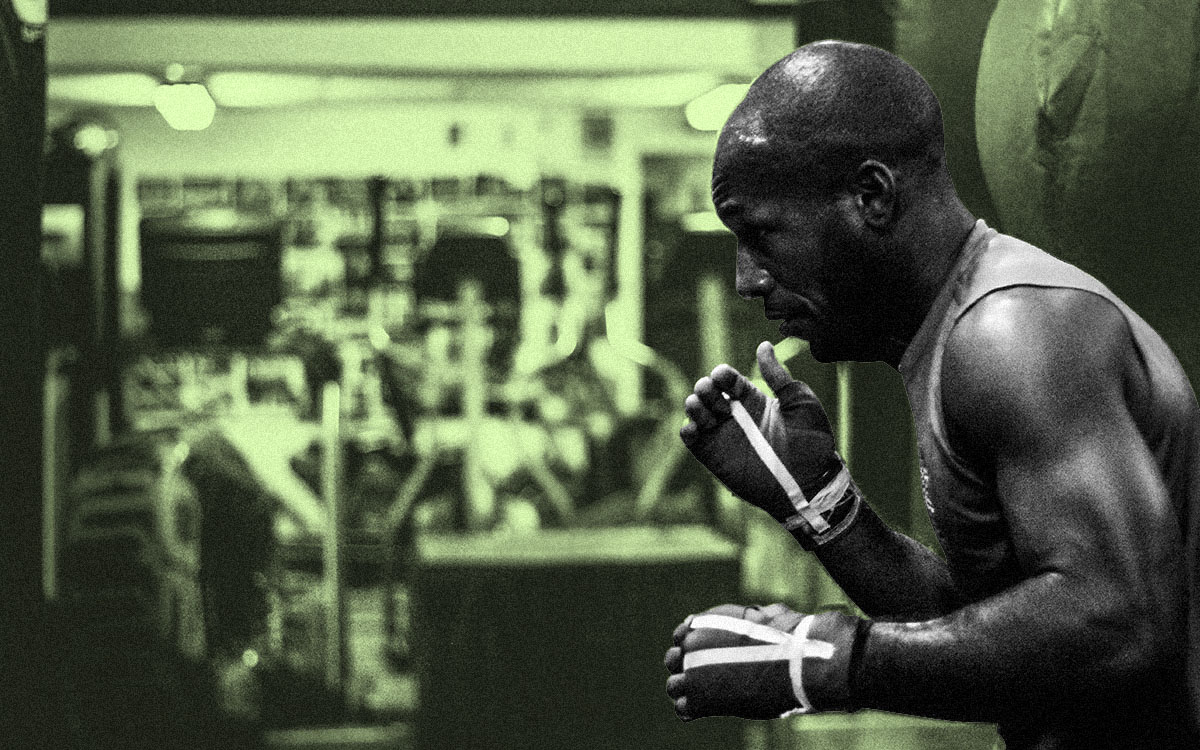A few months ago, the Los Angeles Times reported on a Southern California man who was collecting discarded dumbbells from dumps, garage sales and dark corners of the internet, then selling them for absurd profits. He detailed his process with a measure of pride: soak the weights in vinegar, scrub them with a steel brush, spray-paint them black. He sold one $50 pair of weights for $500.
It’s a predictable, Mad Max-esque endgame in a world where demand for home fitness equipment has far outpaced the production capacity of a broken supply chain for almost a full year. The dumbbell shortage is real, it’s still going strong, and Americans — unable or unwilling to return to the gym — are paying more for someone’s 30-year-old 10-pound weights than the most respected fitness manufacturer in the country would normally charge them for a pair of 125-pound dumbbells.
In short, it’s a bummer. But your strength-training routine doesn’t need to succumb to price gauging or panic. You can do bodyweight exercises. Or learn to exercise with a household chair. And most importantly, you’re allowed to look elsewhere for strength-training equipment. Cast iron, rubber, and stainless steel have long reigned over the gym floor, and for good reason, but there are young brands out there experimenting with alternative materials. Their products are just as effective, and at the moment, far more available.

Earlier this year, that search led us to FitFighter, a New York-based company founded by Iraq War veteran Sarah Apgar. If any studio execs out there are short on biopic ideas, might want to bookmark Agpar: after graduating from Princeton’s Army ROTC Program (where she was a two-time All-American collegiate rugby player) she served as Platoon Leader for the 52nd Engineer Battalion attached to the 101st Airborne Division in Mosul in 2003. After that, she completed her MBA at the Tuck School of Business at Dartmouth College, and had a stint at Warby Parker as Director of New Stores and Facilities.
She longed for the camaraderie of her days in the military, though, and after marrying her husband, joined the volunteer fire department in their Long Island town. There, Apgar registered some of the profession’s more sobering modern realities. Namely, that the job demands exceptional strength and stamina, two qualities men and women struggle to retain as they age. The leading cause of death for firefighters in the United States isn’t fighting fires. It’s heart disease.
Apgar went full DIY. She collected three-foot tubes of recycled hoses from trucks and taught herself to sew. She filled each with steel shot (pellets with five times the density of water), then attached brass grommets to either end of the weights. The goal was to get Huntington, New York’s firehouse in shape. But the Steelhouse, as Apgar named it, soon became a staple for the FDNY Fire Training Academy. And made it all the way to the other coast, becoming part of the San Diego Fire Rescue Academy’s training regimen. Last year, she earned a $250,000 investment from Daniel Lubetzsky, the CEO of Kind Healthy Snacks, on Shark Tank.
While it may not have been Apgar’s original intention, it feels fitting that a workout tool built for first responders is so popular with laymen and women looking to build muscle. The functional movements needed to confront a disaster or execute a mission — all that pushing, pulling, carrying and swinging — are needed in everyday situations, too, albeit with lower stakes. The Steelhose is an ideal bedfellow to the functional fitness movement. And as far as home gym equipment goes, it’s a veritable Swiss Army knife, capable of working as a dumbbell, kettlebell, sand bag, medicine ball or sledgehammer, depending on how you choose to use it.
That versatility can be traced back to the clever design. I’ve logged several workouts with the Steelhose now (alternating between a pair of 10-pounders and a single 15-pound weight), and I’m particularly impressed with the semi-firm filling; in other words, the Steelhose is designed to let its steel pellets slide around and flow like water, which forces a trainee to constantly engage his or her grip. As a form of imbalance training, it’s tricky. But that’s exactly why it works. The exterior of the hose is double-walled and feels indestructible, but that soft “give” means you can comfortably toss it up in the air or swing it against a tire.
I’ve done shoulder presses with my Steelhose weights. Box jumps. Russian twists. Hammer curls. Single-leg squats. It’s a tool, but for the fitness junkies out there, it’ll feel more like a toy. You can have fun with it in a way that is prohibitive with a dumbbell — that’s unless you’re jonesing for a broken toe. That said, for those who tend to buy equipment and feel lost when they pull it out of the box, Apgar also launched a full online library of classes (many of them live!), which schools the FitFighter community on everything from fundamentals to free-wheeling circuits.
Decades of infomercials swearing that a new wellness product must make it to every household in America have justifiably made many lifters dubious of new technology. But it’s hard to think of a home, especially in the equipment shortage era, that couldn’t find something productive to do with a recycled firehose invented by a veteran-turned-entrepreneur.
To shop the Steelhose, head here. (Enjoy seeing that “Add to Cart” instead of a “Notify Me,” for once.) To shop it and earn a full year of training classes free, head here. And shop with the knowledge that with every purchase, FitFighter supports the Stephen Siller Tunnel to Towers Foundation, which serves first responders, wounded vets and their families.
This article was featured in the InsideHook NY newsletter. Sign up now for more from all five boroughs.




















